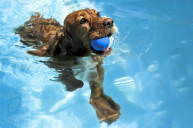A fun trip to the water park turned into a tragic situation that left a 16-month-old toddler dead. Sadly, the young child contracted brain-eating amoeba.
The incident happened at a water park with fountains and jets in Pulaski County, Arkansas. The family brought the young child out to play on the splash pad. But he developed a fever and started experiencing vomiting in the days that followed. Soon, the toddler entered a confused state and was rushed to intensive care.
Sadly, doctors determined that he had contracted the Naegleria fowleri bacteria. It left him with sever meningitis as a result. Brain-eating amoeba, although rare, is extremely deadly. Around 164 people contracted the amoeba between 1962 to 2023. But only four have survived it. Sadly, he passed away just days after contracting the amoeba.
The Centers For Disease Control and Prevention are using his case as an example to warn about the hidden dangers of water parks and water playgrounds. It's not the first time that splash pads have caused a brain-eating amoeba infection. A boy in Texas also died after visiting one. It is thought that low chlorine levels allow the amoeba to survive the pools.
Toddler Dies Due To Infection
The CDC notes that this particular water park had code violations and an improper pH levels at the splash pad. The device used to add chlorine was broken at the time.
This pool, in particular, had several code violations, including improper pH levels in the splash pad's water, and the device used to add chlorine to the water hadn't worked in about a month, which could have prevented contamination.
The CDC warned following the death of the toddler, "Splash pads (also known as interactive fountains, spray pads, spray parks, or wet decks) are aquatic venues that spray or jet water on users. Splash pads are usually designed so that standing water does not collect in the water play area to reduce the risk of drowning. Because of this design, splash pads do not always meet the local, state, territorial, or tribal definition of an "aquatic venue." This means they are not always regulated, nor are they always required to disinfect the water with germ-killing chemicals. Splash pads can spread germs and make users sick if the water is not adequately disinfected."




